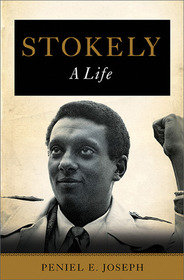Search -
Stokely: A Life
Stokely A Life
Author:
Stokely Carmichael, a charismatic and controversial black activist, stepped into the pages of history when he called for “Black Power? one humid Mississippi night in 1966, at a speech during the March Against Fear. Carmichael?s life changed that day, and so did America?s civil rights movement. “Black Power? became the slogan of an era, and provo... more »
Author:
Stokely Carmichael, a charismatic and controversial black activist, stepped into the pages of history when he called for “Black Power? one humid Mississippi night in 1966, at a speech during the March Against Fear. Carmichael?s life changed that day, and so did America?s civil rights movement. “Black Power? became the slogan of an era, and provo... more »
ISBN-13: 9780465013630
ISBN-10: 0465013635
Publication Date: 3/4/2014
Pages: 412
Rating: 1
ISBN-10: 0465013635
Publication Date: 3/4/2014
Pages: 412
Rating: 1
3 stars, based on 1 rating
Publisher: Basic Civitas Books
Book Type: Hardcover
Other Versions: Paperback
Members Wishing: 3
Reviews: Amazon | Write a Review
Book Type: Hardcover
Other Versions: Paperback
Members Wishing: 3
Reviews: Amazon | Write a Review
Genres:
- Biographies & Memoirs >> Community & Culture >> Black & African American
- History >> Americas >> United States >> 20th Century
- History >> Modern (16th-21st Centuries) >> 20th Century
- Nonfiction >> Social Sciences >> Specific Demographics >> African American Studies
- Uncategorized >> International & World Politics >> Asian
- Nonfiction >> Current Events >> Civil Rights & Liberties




